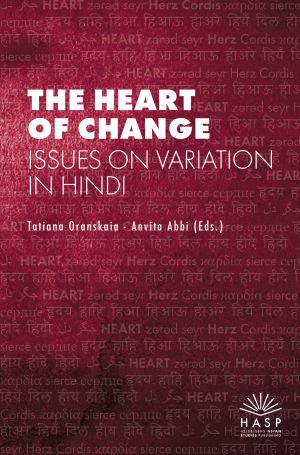##submission.howToCite##
##submission.license## (##submission.chapter##)
##submission.license.cc.by-sa4.footer####submission.identifiers## (##rt.metadata.pkp.dctype##)
##catalog.published##
##submission.downloads##
Hindi Clause Strings with Adverbial Clauses
A Tentative Formalisation
The article presents a tentative formalisation system for multicomponent Hindi clause strings which include at least one adverbial clause. The aim of the study is to create a tagged database of such constructions. The relations between the members of “classical” biclausal constructions, subordinate and coordinate, serve as the benchmarks for investigating longer clause sequences occupying a level intermediary between complex, compound and compound-complex sentences on the one hand and larger text units on the other hand. The special interest in the subordinate modifier clauses is caused by their semantic variety and relatively loose—as compared to complement clauses—connection with the main clause. Due to the latter characteristic adverbial clauses offer more points of syntactic similarity with simple sentences, and so a better possibility for testing syntactic relations between members of a clause string as well as their semantic grounds. Only finite clauses are considered here components of clause strings. The formalisation is expected to on the one hand explicate the results of the preliminary analysis and on the other hand facilitate further exploration on the topic.
Keywords subordination, coordination, formalisation system, gradience, structural variance









